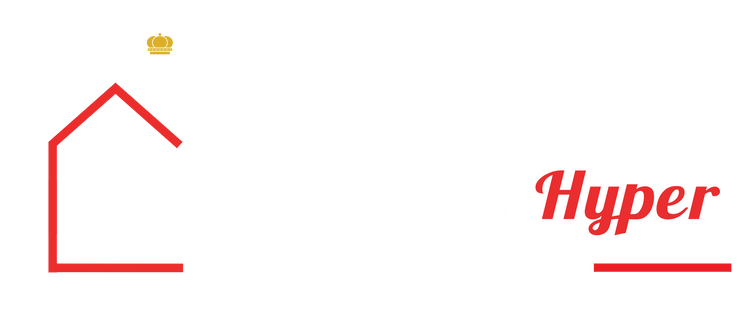Drill Machine Price
Drill Machine Price

Drill machine prices can range widely, starting around R340 for basic corded models and reaching up to R2500 or more for cordless drills, with specialized or heavy-duty types costing even higher. You’ll pay a premium for top brands like Bosch and Makita or added features like adjustable speed, ergonomic designs, and higher voltage. If you’re after the best value, keep an eye out for seasonal sales or bundled tool deals. Want to make sure you’re getting the right drill for your budget? Here’s what to consider next.
Buy Quality Power Tools Online | Drills, Grinders & More
Key Takeaways
-
Corded drills: Most affordable, typically R340–R850
-
Cordless drills: Range from R680–R2500, depending on power and battery
-
Heavy-duty and rotary hammer drills: Start around R1300, can exceed R5000
-
Top brands like Bosch, DeWalt, Makita cost more but offer superior reliability
-
Seasonal sales, bundles, and older model clearances offer savings opportunities
Key Factors That Influence Drill Machine Cost
Several key factors influence drill machine pricing:
-
Power rating: Higher wattage or voltage equals higher cost
-
Features: Variable speed, LED lighting, torque control, brushless motors = higher prices
-
Brand reputation: Trusted names charge more but provide better warranties and support
-
Market demand: New launches or supply shortages can raise prices
-
Retail channel: Online prices may be lower, but in-store promos can offer value
Understanding these factors helps you shop smarter and avoid overpaying.
Corded vs. Cordless Drill Machines: Price Differences
The biggest price gap in drill machines lies between corded and cordless models:
-
Corded drills:
-
Cost less (R340–R850)
-
Offer continuous power—no battery limits
-
Better for long projects, less mobile
-
-
Cordless drills:
-
Cost more (R680–R2500)
-
Portable and battery-powered
-
Require replacement batteries (adds to long-term cost)
-
Choose based on how often you use the drill and whether you prioritize power or portability.
Comparing Top Brands and Their Pricing
Here’s a rough comparison of popular drill machine brands:
| Brand | Price Range | Notes |
|---|---|---|
| Bosch | R1190–R4250 | Reliable, long-lasting, good accessories |
| Makita | R1300–R5000 | Pro-level performance, often brushless |
| DeWalt | R1190–R4800 | Tough design, excellent battery life |
| Ingco | R600–R1500 | Budget-friendly, good value for beginners |
| Black+Decker | R500–R1700 | Affordable, perfect for home use |
Premium brands offer better performance and longevity, but for light use, budget models can be more than enough.
Features to Look for Within Your Budget
Whether you're on a tight budget or splurging on a pro tool, focus on features that matter:
-
Variable speed settings for different materials
-
Ergonomic grip for reduced fatigue
-
Adjustable torque for screwdriving tasks
-
Sturdy chuck—preferably keyless—for fast bit changes
-
Battery indicators and fast-charging (for cordless drills)
Avoid paying for extras like built-in lasers unless you’ll actually use them.
Price Ranges for Different Types of Drill Machines
Let’s break it down by type:
| Drill Type | Price Range |
|---|---|
| Corded Drill | R340 – R850 |
| Cordless Drill | R680– R2550 |
| Hammer Drill | R765 – R4250 |
| Rotary Hammer Drill | R2000– R5780 |
| Magnetic/Impact Drill | R4250– R7000 |
Corded drills are ideal for light DIY jobs, while cordless and rotary hammers suit heavier-duty applications.
Where to Buy Drill Machines for the Best Value
-
Online Store: Paint & Hardware Hyper
Seasonal Discounts and Promotional Offers
Timing your purchase is key:
-
Black Friday, Boxing Day, and mid-year clearance sales often slash prices
-
Manufacturer promotions may include free batteries, drill bit sets, or toolboxes
-
Sign up for newsletters from retailers to catch exclusive codes and flash deals
Used vs. New Drill Machines: Cost Comparison
Used drills are tempting for budget buyers, but weigh the risks:
| Aspect | Used Drill | New Drill |
|---|---|---|
| Cost | 30–60% cheaper | Full price |
| Warranty | Usually none | 1–3 years standard |
| Reliability | Unknown wear/damage | Guaranteed performance |
| Features | May lack modern upgrades | Latest technology |
Used models are good for hobby use, but professionals are better off with new tools.
Tips for Getting the Most Out of Your Investment
-
Use the right bit for the job—don’t force metal bits into masonry
-
Avoid overheating—give the drill time to cool during heavy use
-
Clean and store properly—keep it dry and dust-free
-
Charge batteries fully before first use for longer life
-
Read the manual—you’d be surprised what features you might miss
Small habits lead to a longer lifespan and better results from your drill.
Frequently Asked Questions
Are Drill Machines Safe for Beginners?
Yes—with basic precautions. Wear goggles, clamp down materials, and start with lower speeds. Many beginner models include safety locks and soft-grip handles.
How Long Does a Drill Machine Last?
With regular maintenance, a quality drill can last 5–10 years or more. Cheaper models may wear out faster, especially under heavy loads.
What Type of Drill Is Best for Home Use?
A cordless 18V drill/driver is ideal—it’s versatile, light, and handles most home tasks from hanging shelves to furniture assembly.
Is It Worth Buying a Brushless Drill?
Yes, if you use your drill often. Brushless motors run cooler, last longer, and deliver more power—but they do cost more upfront.
Can I Use My Drill Machine for Screwing?
Absolutely. Most drills have torque settings and can drive screws—just use the correct bit and speed.
Final Remarks
Buying a drill machine is a balance of power, portability, and price. By understanding how features, brand, and type impact cost, you’ll make smarter choices. Whether you go corded for budget reliability or cordless for convenience, there’s a drill out there that fits your exact needs—and your wallet. Invest wisely, and your drill will be a trusted tool for years to come.




